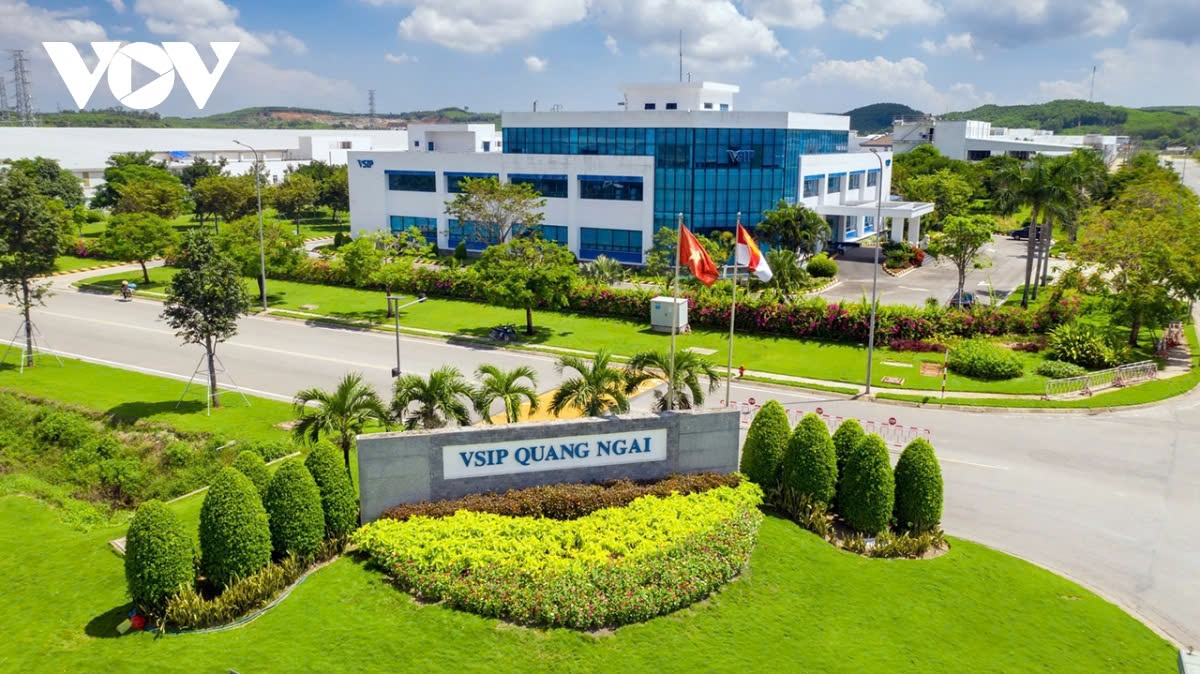Vietnam and Singapore seek to create breakthrough in economic cooperation
VOV.VN - Economic and trade cooperation has always been a bright spot in the relationship between Vietnam and Singapore, and the two countries are seeking ways to promote this relationship in a sustainable manner.
Trade growing constantly

Since 1996, Singapore has always been one of Vietnam’s largest trading partners, with two-way trade increasing year by year, and direct investment from Singapore into Vietnam growing consistently. The Vietnam-Singapore Industrial Park (VSIP) has become a symbol of the Vietnam-Singapore partnership, expanding into areas such as green industries, high-tech, and innovation.
Key ASEAN members, both Vietnam and Singapore play significant roles in multilateral forums and international affairs, such as the United Nations, ASEAN, Asia-Pacific Economic Cooperation (APEC), Asia-Europe Meeting (ASEM), and World Trade Organization (WTO).
Cao Xuan Thang, head of the Vietnam Trade Office in Singapore, noted that while Singapore is a relatively small consumer market, it is home to many multinational companies and serves as a global hub for information, trade, finance, and logistics. In addition, it is a key international air transport hub and an important gateway into Asia, particularly Southeast Asia, including Vietnam.
Statistics show in 2023, Singapore was Vietnam’s fourth largest trading partner in ASEAN after Thailand, Indonesia, and Malaysia, and the 14th largest trading partner globally. In return, the latter was the former’s fourth largest trading partner in ASEAN and the 11th largest globally.
Two-way trade turnover between Vietnam and Singapore hit US$9.1 billion in 2023, and US$9.6 billion in the past 11 months of 2024, a 17.5% increase compared to the same period last year.
By product group, the top category is processed and manufactured goods, which make up 76% of Vietnam’s total exports to Singapore, followed by fuels and minerals (6%), and agricultural, fishery products, and construction materials (5% each). This highlights that processed and manufactured goods are the main export items to Singapore, including computers, components, machinery, equipment, and transport vehicles.
Opportunities and Challenges
Trade experts pointed out that despite strong political and diplomatic relations, business cooperation has not yet fully matched the two countries’ potential. For instance, in the agriculture and seafood sectors, Vietnam has abundant agricultural and food resources, while Singapore imports over 90% of its food. However, agricultural exports from Vietnam to Singapore account for only 5% of the total exports, with some products such as chicken and eggs still not allowed to be imported into the island state. Furthermore, challenges faced by businesses include stringent food safety, technical standards, environmental protection regulations, and other import requirements in Singapore.
Moreover, Singaporean consumers have high expectations regarding product quality, labelling, branding, and reputation, which means many Vietnamese products still struggle with consistency, variety, and branding. In addition, competition in the Singapore market is fierce, with competitors coming from Thailand, India, and Japan.
Yet, trade experts said, these are favourable factors that promote business cooperation between Vietnam and Singapore, due to the two countries’ good political and diplomatic relations, close geographical proximity, and similar cultural environments within Southeast Asia, not to mention they both are members of many free trade agreements (FTAs). Additionally, every year, many business delegations from Singapore are supported by the Vietnamese Trade Office to visit Vietnam to explore market opportunities and establish partnerships.
During a recent meeting with Singapore’s Ambassador to Vietnam Jaya Ratnam, Deputy Minister of Industry and Trade Nguyen Hoang Long emphasized that Singapore is a leading economic, trade, and investment partner for Vietnam in the region and globally. Long expressed hope that Singapore would continue to support Vietnam in areas like the digital economy, green growth, and sustainable development, particularly in helping Vietnam achieve its net zero emissions target by 2050.
Ambassador Ratnam confirmed Singapore’s willingness to collaborate and assist Vietnam in training its workforce in these sectors and others on request from Vietnam.
To gain a firm foothold in the Singaporean market, Thang underscored the importance for businesses to thoroughly research the market, understand changes in import policies, and develop export strategies. He also noted that Singapore is becoming more cautious in its trade policies and is diversifying its trade partners, presenting an opportunity for businesses to penetrate deeper into the market.
He also suggested that businesses renovate production technologies and improve product quality, packaging, and branding to meet Singapore’s high standards, particularly in the growing green consumption sector. Furthermore, businesses were advised to actively engage in trade connections, expand partnerships, and leverage e-commerce to market products, build a strong relationship with consumers, and gain flexibility in adapting to market demands.



